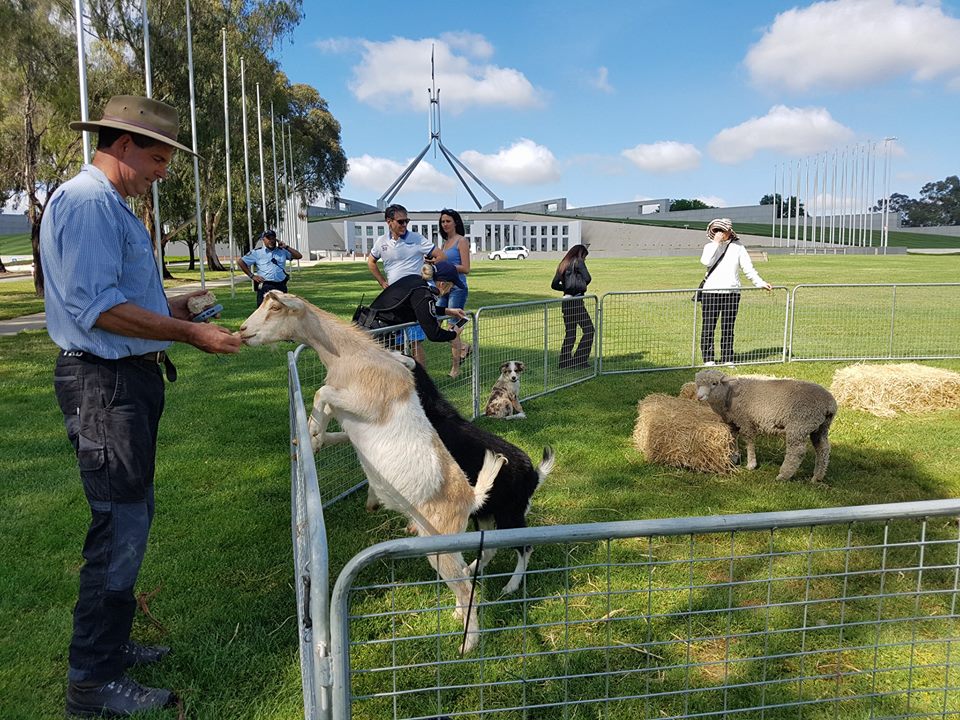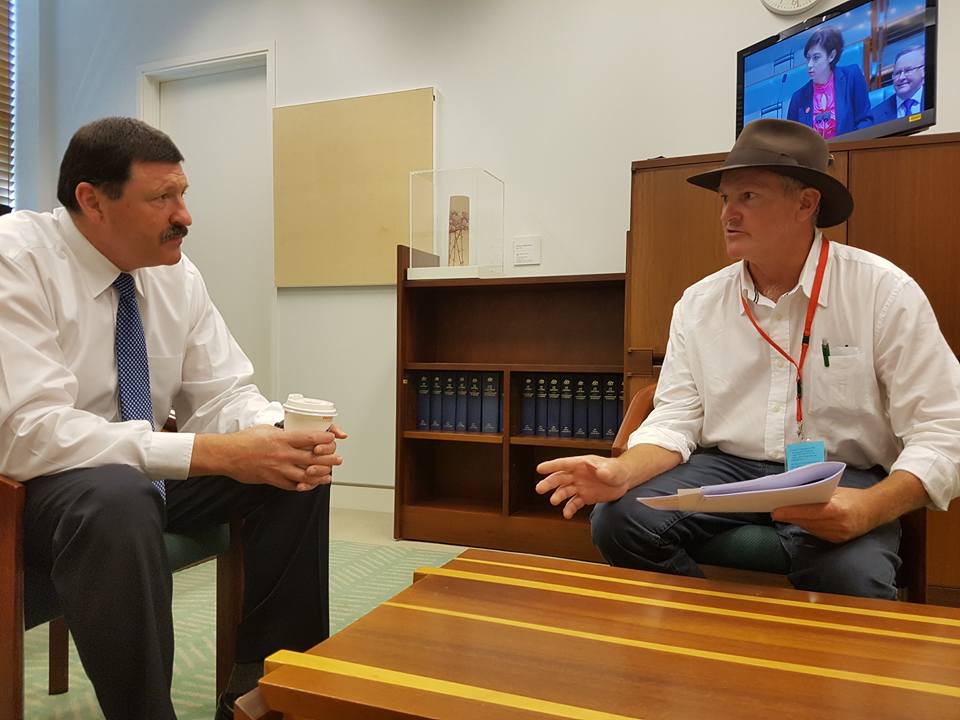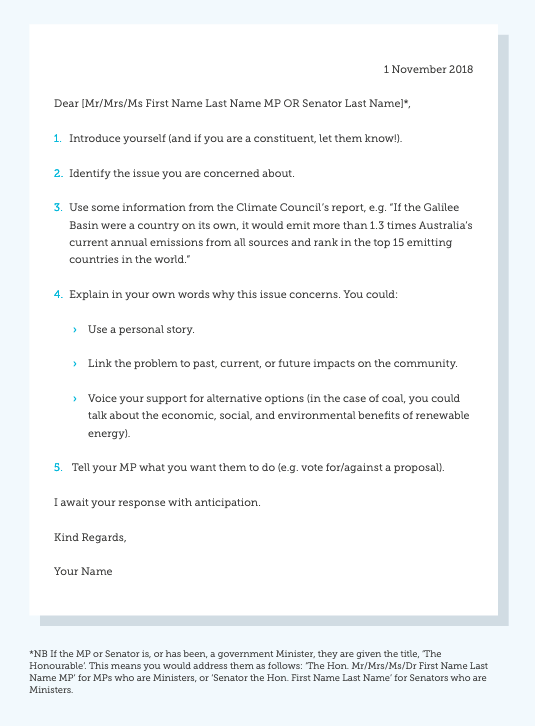This toolkit is designed to support farmers seeking to promote our Regional Horizons economic stimulus asks
It also highlights some advice on common climate myth busting tips for talking about climate and when and when not to represent Farmers for Climate Action. We also recommend you check out the FAQs page on our website.
Why is this important?
The COVID-19 economic recovery presents a once-in-a-generation opportunity to position rural and regional Australia at the forefront of a clean energy and climate-smart revolution.
Rural and regional has the potential to be a renewable and climate-smart powerhouse, drawing on the experience Agriculture draws on the power and experience of farming communities and the nation’s $60 billion agriculture industry.
Australia can emerge as a global leader becoming a renewable energy superpower, maintaining and improving agricultural productivity, assuring food security while exploring new opportunities.
We can accelerate large-scale investment in landscape repair; build adaptable, resilient communities; and cut emissions.
The Regional Horizons program creates new opportunities for jobs and industries, while building a climate-smart rural and regional Australia. It builds on existing successes, networks and investments and provides policy integration and certainty, making possible private, public and community-led innovation.
And what do we need to do?
We need to build the political pressure for the Regional Horizons stimulus program. As a farmer, you are one of the most trusted voices on climate. By meeting with your local MP and writing to your local newspaper, you will be making a strong case for the Government to position rural and regional Australia at the forefront of a clean energy and climate-smart revolution.
Call your MP

Calling your MP is another great way to get your message across.
8 top tips
- Plan ahead – find out what their position is on climate change and energy. What is the ask you want to make of them? What are the points you want to get across?
- Introduce yourself – give your full name, note that you live in the electorate and say you want to talk about climate action (or more specific issue)
- Share your story – how and why is climate action important for you? What challenges does it present?
- Key messages – draw in the points you developed before the call
- Be polite – it’s important to keep the conversation respectful if you want to get your message across
- Get to the point – try not to confuse the issue by going off on a tangent and try to keep it short
- Be honest – say so if you don’t know the answer and let them know you’ll find out and get back to them
- Make an ask – as in the letters advice
Hold a meeting with your local MP
We want to make sure MPs know voters and farmers want to see a recovery plan that includes climate adaptation and solutions. These MPs will be reporting back to the Cabinet, and it is vital to have them advocating for the policies in the Regional Horizons document.
It can take a few weeks (or more) to confirm a meeting time with your MP, so make sure you get in early if there’s an important date coming up. If this is your first meeting, it should not be the last! MPs are busy and need to respond to urgent issues and their diaries change a lot. Don’t be put off if your meeting gets cancelled, shortened or rescheduled at late notice – be polite but persistent!
First step: Get in touch!
We’d love to help and possibly come along. Email Cam at [email protected] with details of what you’re thinking.
Second step: Draft a letter
- If you’ve not met with the MP before, make sure to include a few pertinent details about yourself, your electorate and your personal reason for being concerned about climate change (i.e. I’m a farmer from Maranoa and I’m concerned about the way climate change is making it difficult for me to farm. That’s why I would like to talk to you about a new policy document that is focussed on climate solutions.). Also make a note of your role within your community and your community’s concerns
- State your request for a meeting and the date range you’re available.
- Explain that you want to meet with them to discuss Farmers for Climate Actions 4 step stimulus plan to support Australian agriculture tackle climate change and recover from COVID.
- Attach the 1 page Regional Horizon’s outline document.
- Ask their office to contact you arrange a suitable time
- Note anyone else you would like to bring along (this can be vague, i.e. other constituents who are volunteering with you)
- Sign off with your name and contact details
Third step: Make a phone call
MPs receive a lot of emails. Once you’ve sent the email, follow up with a phone call to make sure it doesn’t slip through the cracks

Fourth step: Plan your meeting agenda
It’s best to call ahead of time and ask how long your MP’s office has allocated for your meeting.MPs are busy people – it would be a shame if you prepared for an hour-long meeting if you only have 20 minutes!
- Get each person to introduce themselves and share a 1 minute story of why they care about our living world.
- Show you’ve done your research – congratulate them on something they’ve done well on climate, or something they may have said publicly about their values, and ask whether they agree we need to act more urgently to stop climate pollution.
- Explain that you are a member of a group called Farmers for Climate Action, who are working with farmers to come up with climate solutions. Explain what Regional Horizons is and why you think they should support it.
- Put the ask to your MP. Here’s what you should ask them to actually do:
-
- Publicly speak out (in the media, in parliament, write to your leader, or on social media) in support of the above Regional Horizons – and let you know when they do .
- Publicly advocate for these policy proposals within their party.
- Take a photo with you and share it with their commitment to do the above
- Listen to what your MP has to say about the asks and policy demands. Take notes so you can check whether the things they’re saying are already party policy.
- Thank your MP for their time and let them know your next steps
Fifth step: The meeting
- Turn up on time!
- Follow the agenda
- Send a thank you email after you’re done
Write a letter to, or email, your local MP
You can search for the contact details of your local Member here. You may also like to consider your state’s Senators, or the Ministers for Agriculture, Environment or Energy.
Advice on content
- Try to speak to the most influential person available – i.e. the MP’s policy advisor or chief of staff – this might not be possible in some regional offices, but it’s best to aim high
- Keep it short and focussed on one issue
- Outline the reason you believe we need a climate stimulus bill for the agriculture sector and outline the 4 key parts of the bill.
- Make it personal – explain why you care, but be sure to remain calm and respectful
- Ask your MP to take a specific action: come out publicly in support of the stimulus ask/advocate for it in their party room etc.
Sample letter
The great folks at Climate Council suggest a letter structure like the below for MP letters (Climate Council, Climate Action Toolkit, p. 11.

Write a letter-to-the-editor
You are encouraged to write letters to the editor in response to recent letters to the editor explaining why we need the Regional Horizons program to be adopted and implemented.
Advice on content
- Open with a greeting, using the editors name if you know it
- Make it interesting: Try to capture the reader’s attention from the very first sentence. If writing in response to another letter or article, cite its date and title.
- Make a convincing case: try to be persuasive and back up your facts with solid evidence.
- Make a call to action: Be clear about what you want done about a particular issue
-
- Outline why we need this policy now
- The COVID-19 economic recovery presents a once-in-a-generation opportunity to position rural and regional Australia at the forefront of a clean energy and climate-smart revolution
- The Regional Horizons program creates new opportunities for jobs and industries, while building a climate-smart rural and regional Australia
- With some clever government investment we can make regional Australia the hub of the new energy economy.
- Keep it short: Your letter has a better chance of making it into the newspaper in its entirety if it is 250 words or less in length. Editors may edit or shorten letters to ensure they fit the space that is available on the letters page, so write a draft, proofread, cut and tighten up your language as much as possible – aim for brevity, short sharp sentences.
- Sign off with your name and contact details (they won’t publish your contact details but may need to contact you to follow up or verify your identity)
During an election campaign:
During an election letters-to-the-editor are a great way to get climate on the agenda in your local seat.Avoid negative commentary on other electoral candidates, and stay positive throughout your letter. Letters that spend too much time discussing opposing candidates can have the effect of consolidating those candidates’ profile in the community.
Draft an opinion editorial
If you’d like to write something a little longer (although not over 600 words!), you might like to think about an opinion editorial. You could use this as a way to draw attention to a specific initiative you’d like to draw attention to.
Some questions that may help guide your piece:
- (Briefly) who are you and what do you do?
- What climate impacts have you seen on your property?
- What have those changes meant for you and your business? How have you adapted and what changes have been impossible to adapt to?
- What have the impacts of climate change meant for region
Each of the above points only need a sentence or two each
Then:
- Introduce the initiative – what would it entail?
- What benefits would it bring to rural communities (jobs and opportunities!)
- Why do you feel particularly strong about this approach?
- What’s your vision for the future and what would it take to achieve it?
Next steps
Once you’ve taken a stab, track down a photo of you on your farm, then share both with Fiona at FCA at [email protected]. With the help of CMC, we can help you edit and pitch the final version.
Engage on social media
One of the least time-intensive way to get the message out about climate is through social media.
Ways you can get involved:
Follow Farmers for Climate Action on Facebook and Instagram and like/share our posts
Follow @Farmingforever on Twitter and love/share our tweets
Write your own posts and tweets and tag us and use the hashtag #regionalhorizons! Better yet if you can write your own sign Regional Horizons and share a photo of yourself with it.
Personal posts on Facebook can be a powerful way of communicating about climate. You can write to your friends but you might also like to consider making the odd post public. If you’re doing this, write from the heart about why climate action is important to you, your farm business and your community and consider including a photo of yourself on farm.
Let us know if you do this as we can help respond to comments/queries – [email protected].

Tips for talking about climate
One-on-one conversations with family, friends and acquaintances is another great way to raise awareness of climate change. Below are some tips on having climate conversations.
Do:
-
Localise the problem: how is climate change impacting your region and your farmbusiness
-
Make the problem immediate – this is not just a problem for future generations
-
Focus on the potential impact on people
-
Emphasise how widespread concern about climate is
-
Focus on solutions – we have the answers, we just need to act
-
Draw attention to the benefits of renewable energy (and give examples)
Don’t:
-
Talk about ‘belief’ – the facts have now been established
-
Refer to a ‘debate’ – see reason above
-
Bamboozle your audience with long lists of facts
Common climate mythbusters
One of the things you will be keen to do is have conversations with your friends and family about climate change! You’ve probably found already there are a selection of climate myths that tend to come up again and again.
Here are some places to go when thinking about how to respond:
There is so much out there! The Climate Council is a good starting point:
https://www.climatecouncil.org.au/resources/2018-19-angry-summer-infographic/
https://www.climatecouncil.org.au/resources/summer-bbq-guide-talking-energy/”
The Skeptical Science page is great – it was started by John Cook as a way of responding to his father-in-law’s skepticism.
Bill Nye (the science guy) has some great explainers on YouTube
NASA has some great resources here and here. This page has some great graphics, but possibly too detailed:
You are also very welcome to use the resources on our website.
When should I represent Farmers for Climate Action?
Farmers for Climate Action is at its heart a movement of farmers and we’d love you to represent us. Before publicly representing us, please do check in with us first. Our reputation is key to our success and we need to make sure we’re all on the same page
If representing us, please:
-
Always remain respectful and non-partisan when acting on behalf of FCA
-
Be evidence based when talking about climate and climate change
-
Speak to Fiona before confirming any media opportunities and interviews specifically around Regional Horizons
-
Agree to abide by FCA’s values when representing the organisation. These values are, integrity, innovation, stewardship, equity and justice.
The climate action checklist
We’ve presented a number of ways you can support our campaign for climate action on and off-farm.
Here is a quick checklist of the methods outlined here and some others you may want to consider.
-
Contact an MP
-
Meet with an MP
-
Write a letter-to-the-editor
-
Support climate action on social media
-
Have a conversation about climate action
-
Write an opinion editorial – email [email protected]
-
Learn about & implement climate smart agricultural practices on-farm
-
Other ……..


